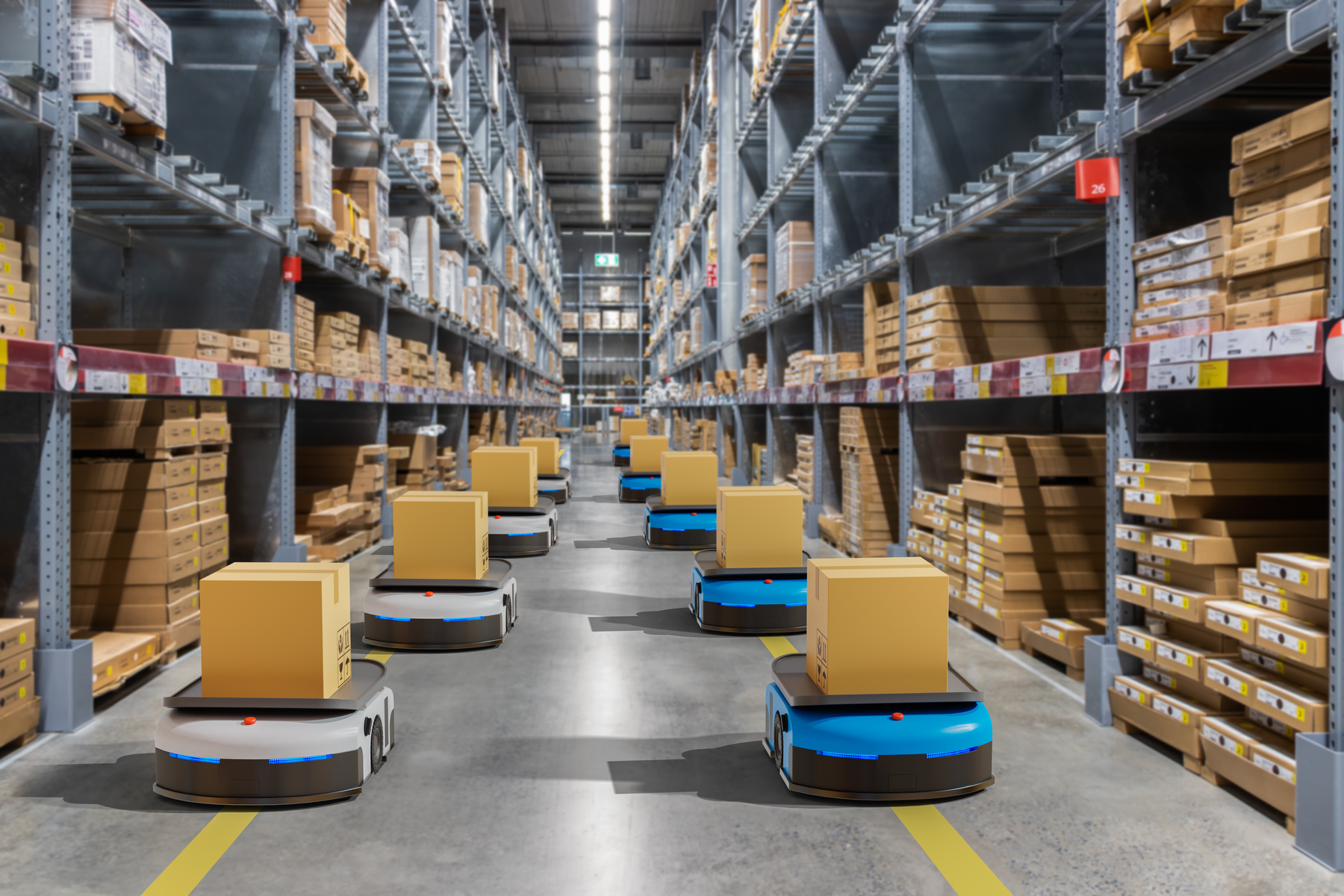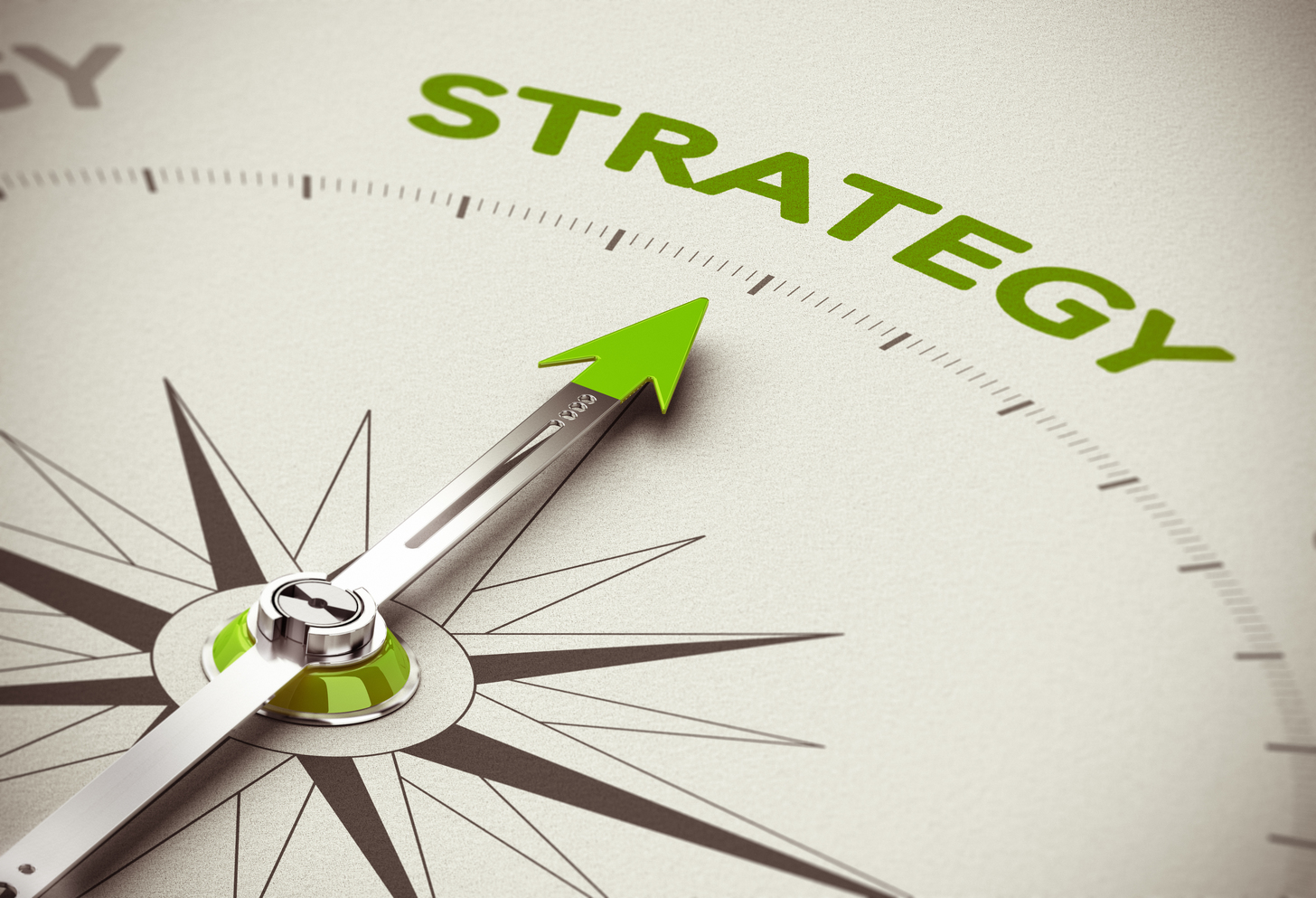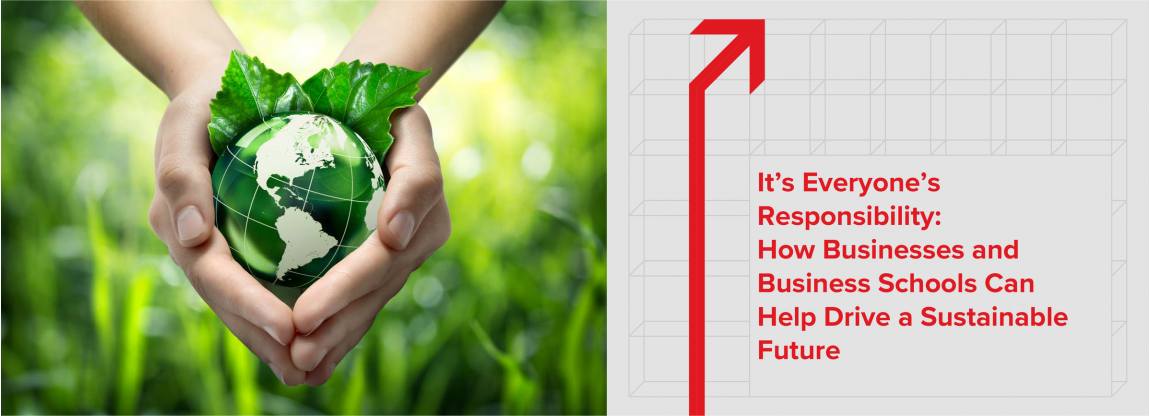It’s Everyone’s Responsibility: How Businesses and Business Schools Can Help Drive a Sustainable Future
The direst of climate change predictions suggest that the tipping point for recovery is much closer than we might wish to admit, with experts repeatedly urging prompt and decisive action. While progress has felt frustratingly slow, it finally feels as though there is some momentum in business to help combat the climate emergency. So, what part can business schools play in moving environment sustainability to the top of the agenda?
In an enlightening (and cautiously heartening) session at the AMBA & BGA Business School Leaders Summit 2022, Adam Hall, Head of Sustainability for the Internet Fusion Group, and Rita Monteiro, Head of Net Zero Programs at Amazon came together to discuss the role of business – and by extension business schools – in leading a global movement towards sustainability and environmentally responsible living. Here is a summary of their discussion and advice:
Bake it into your mission and lead the charge


The first thing they agreed on was that sustainability needs to be made central to the business function, rather than being treated as a bolt-on or nice to have. Both Amazon and the Internet Fusion Group have included sustainability in their mission statements, ensuring that it retains the strategic focus that it deserves. Crucially, in this respect, they have not waited for policy to force their hand but have done so independently, recognising the urgency of the situation, and the ethical duty of all companies to act against climate change.
Both are also very much in alignment over their belief that success in transforming a business into a more sustainable one is dependent on buy-in from the very top, with the leadership measuring and tracing sustainability metrics in the same way as safety, productivity and profit, making it part of KPIs (Key Performance Indicators), so that sustainability can be better integrated and benchmarked and leaders can see where trade-offs need to be made.
Sadly, this is far from being the mentality of all businesses, with lots of organisations continuing to behave in non-ethical ways. When it comes to a global movement towards more sustainable ways of doing business, Adam Hall believes that this will be driven by a trifecta of factors: intrinsic motivation within companies, legislation, and changing societal values. However, he firmly believes that businesses need to take the lead saying: “The major gear shifts are with policy change, that's when we really make solid changes, but governments are notoriously slow and they will never be seen to impede business. So actually, businesses need to lead. When governments or policy makers see business change and being successful it makes it easier for them to change policy.”
Breaking boundaries and making partnerships
Sustainability is very much linked to innovation of course, to finding brand new ways of doing things and changing the habits of decades by embracing modern technologies – and in the case of Amazon, investing in them. Big global problems, such as the carbon pollution caused by transportation and packaging, requires big solutions. And while new tech is emerging, it is very new and needs to be made scalable. Rita highlights the fact that big, multi-national corporations have the means and the power to partner with smaller pioneering organisations to speed up the process. Transition to renewables is growing exponentially across the globe, but if we are to see wholesale rejection of petrol and diesel-powered vehicles, we need to solve the problem of having enough electric storage solutions for electric cars for example.


For both companies, packaging is also an issue, requiring innovation and collaboration with third parties. Adam describes how the Internet Fusion Group works with their supply chain to try to ensure consistency across the piece, requiring them to follow a traffic light system of packaging guidelines. He says that his suppliers have responded positively to not just being asked to change but to being given a ‘how to.’
Rita, meanwhile, highlights that Amazon has teams of several hundred people researching materials and supply chain elements, with the big question of how to get products out to the customer while limiting carbon a major priority for the company. Amazon has already eliminated tens of millions of tons of waste, she says, although it is not as simple as some might assume, requiring careful balancing. Paper production is more carbon intensive than plastic, for example, but packaging made from paper is more easily recyclable and biodegradable.
But really, it is not about companies working in isolated silos to solve problems – as very few have the resources of Amazon. It is about large companies helping to shape policy in ways that are practical and tactical, she says. When it comes to something as crucial as battling climate change, businesses need to work together in a non-competitive space, influencing their supply chain, customers, and sharing best practice.
And if nothing else… do it because it is good business


For years we have been talking about a triple bottom line – people, purpose, profit, and championing people-centric organisations. Shouldn’t we now be changing this to a quadruple bottom line that includes the ‘p’ of planet and talking about planet-centric organisations?
For Rita, people and planet are inseparable – part of the same discussion. “Planet-first becomes profit-first because it's the company's long-term survival in the economy,” she says. “There needs to be calibration of the short-term action versus the long-term benefit. Sometimes we do need to invest now and only take the benefit later.”
Adam agrees: “It's not just about trying to limit your impacts anymore,” he warns. “It's about planning, because the world around us is changing very, very fast, and your current business model may not be adequate […] We need to change the perception of sustainability - it's a practical function of the modern business. Operational efficiencies come along with sustainability, and that's cost savings. We should be doing it because it's the right thing to do, but we need to make this a more practical, pragmatic function of a modern business.”
Take-aways for business schools and business students?
In terms of what business schools can do, both believe it is about showing the leaders of the future that sustainability crosses over every department and needs to be woven into strategic planning. Rita Monteiro says: “It's not the department of sustainability's responsibility to decarbonise, it's about having the governance that allows the execution of all functional heads in the business to act towards the same direction… We need to make sustainability not an elective but a core topic on any baseline business curriculum - like marketing and finance. Business schools need to integrate EFE metrics into every business case or strategic planning that they are showcasing and have more practical exercises on implementing those changes.”


Rita further suggests that universities build on their links with local enterprises to follow, or contribute to, real-life projects over multiple years.
Adam also believes that sustainability agenda has fallen victim to confusing terminology and describing sustainability in complex ways. “We need to simplify it, make it explainable, communicable and achievable,” he says – and here business schools have a clear role in shaping leaders of the future who have a real understanding of what matters and what can be done.
Asked what advice they would give to students currently working through a business course, Rita first advises that they pay attention in analytics classes, saying that metrics are key to driving change. “Sometimes the changes don't need to be purchasing a fancy new asset, a lot of optimisation can happen just by looking into a business strategically and on a process-based level.” And she further recommends that they look to understand how sustainability fits into each of the disciplines: finance, marketing, operations. “Bring that element of criticism and sustainability into everything you do, whatever specialisation you decide to follow,” she urges.
How McGraw Hill is contributing to sustainability


As one of the world’s leading education companies, McGraw Hill shares in the duty of global businesses to react to the climate emergency by changing our practices to become more sustainable, and this is in part reflected in our shift from traditional textbooks to digital products, with the latter growing from 25% to 60% since 2013.
However, as an education provider we have an opportunity not only to look at the way we work but to be part of spreading the word, working alongside business schools to ensure that the leaders of the future have the knowledge and skills needed for a greener economy.
We’re proud of the way that our authors and editors are ensuring that sustainability receives the profile and focus it deserves in the latest editions of our seminal business and economics texts – such as Fahy’s Foundations of Marketing and Hillier’s Fundamentals of Corporate Finance.
We've gone past the point now where sustainability can just be a box-ticking exercise. In a world in constant flux, with major political, economic, social and technological developments demanding that businesses adapt and take ethical standpoints – sustainability crowns them all. If the pandemic has taught us one thing it is that innovation comes out of urgency and now we must turn our collective attention and our marvelous ability to create and innovate to the climate issue. For, to finish with a hard-hitting quote from Adam: "Without a functioning ecosystem, everything else is built on sand."


